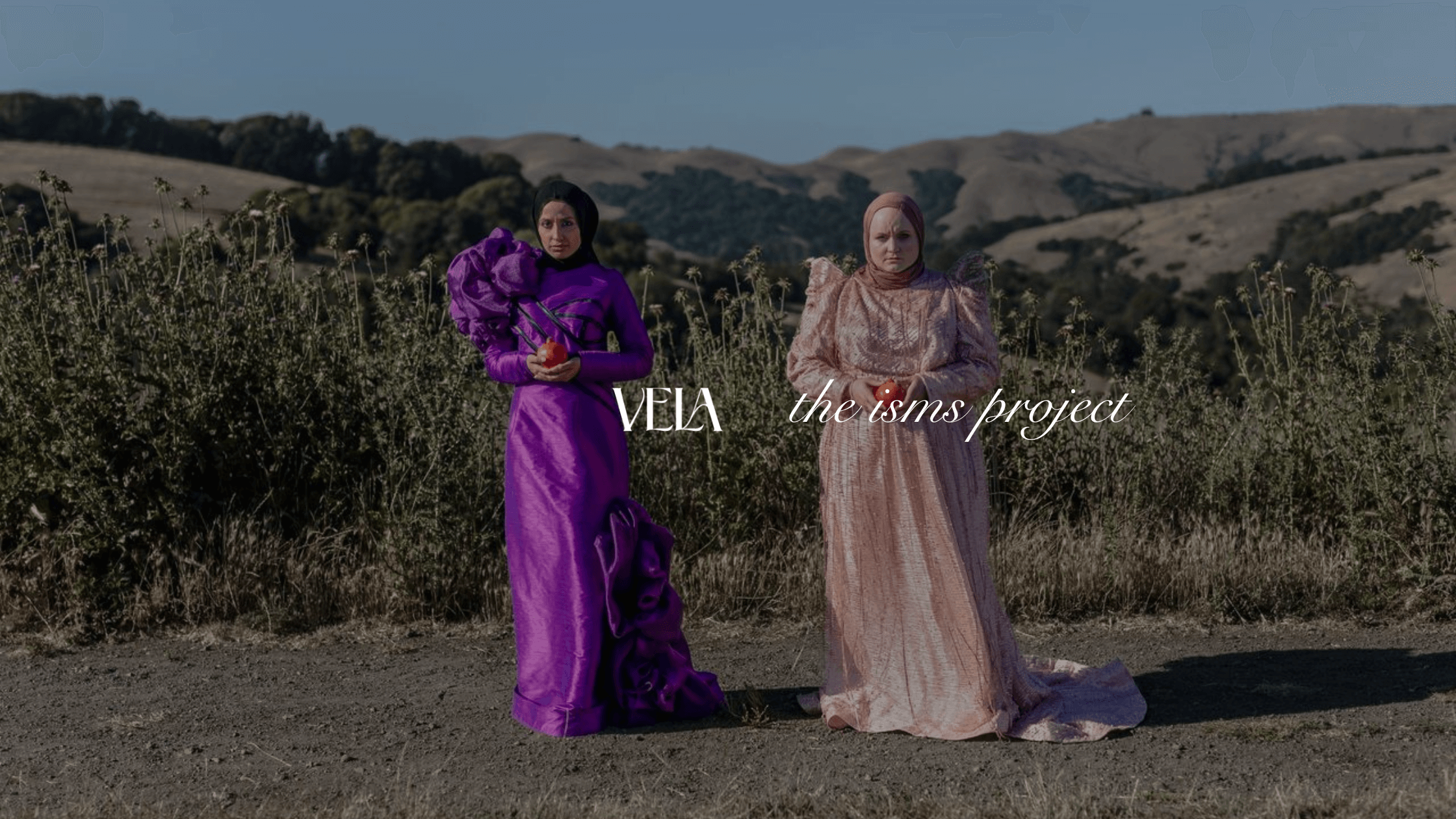When I was little, I loved playing dress up with my sister. We wouldn’t just borrow my mother’s oversized jackets and high heels, but we would take scarves, blankets and tablecloths to create dramatic, make-shift wedding dresses. Then, with chocolates, we would bribe our little brother to stand in as the officiant in our double wedding to imaginary fiancés. Back in those days, I thought finding love and marriage was as easy as one, two, three.
It took some time in the real world, after graduating college and law school, to realize it wasn’t that simple. As a Muslim woman, finding a practicing Muslim man has been difficult. After a few years of floundering, swiping left and right on matrimonial apps, and having no luck with matchmakers, I went on a journey to answer the question: why is it so hard for educated, practicing Muslim women, over the age of 25, to get married?
The Isms Project was born from a realization that “isms,” –stigmas or prejudices – like ageism, sexism and racism are perpetuating a marriage crisis in the Muslim community. After writing about my experiences, and those of the women around me on various online magazines and blogs, I came up with an idea for a photo series. I wanted to document and share the stories I was collecting from Muslim women across the U.S, in a more visual manner. So in early 2021, I gathered a team of Muslim female createives and planned an epic photo shoot set in Northern California. Together we told the stories of women who were battling prejudices to find love and marriage, while also finding the inspiration to stay resilient and confident as they continue their hunt.
After a lot of positive feedback and media attention, we came back for part two– the Isms Project 2.0. This year, we took on new “isms”-- the stigma of divorce, sizeism and ableism.

STIGMA OF DIVORCE
Photo Credit: Irum Ibrahim
Model wears Vela, Black Onyx (left) and Vela, Rose Gold Silk Chiffon (right)
“To be divorced, female, and Muslim is the ultimate scarlet letter. In our community, potential suitors see us as leftovers, or damaged goods. But there were fruits that we cultivated in our first marriage: growth spurts, milestones met, children born and faith deepened. Fruits, not burdens. And yet, these fruits are used against us.”
Due to cultural beliefs, not Islamic tradition, there is a burning stigma associated with divorce for Muslim women. These women are often steamrolled with questions from the men they meet on the apps or in real life, about why they got divorced. I was shocked to hear stories about men that exhibited inappropriate behavior under the belief that since the woman was no longer a virgin, she would be more inclined to break the rules. I also heard from single mothers who told me that even when they talked to potential suitors who were themselves divorced with children, her children were seen as unwanted and burdensome. Stories like that made me motivated to present this stigma in the photo series.
To highlight the impact of this stigma, we found two women to be our models to represent “divorce-ism.” Set in farmlands, the photo shows the women holding pomegranates which symbolizes fertility and love. I wanted the farmlands and the fruit to represent a cultivation of good things: a process of growth, maturity, and learning. Instead of a muddied past or burdensome history, I want people in the Muslim community and beyond to see a woman who has been previously married as someone who has lots of positives to bring to the table; fruits, not burdens.

SIZEISM
Photo Credit: Irum Ibrahim
Model wears Vela, Natural Stone
34 years old, Egyptian American, middle-school educator from Minnesota
“Ever since I can remember, I’ve been self-conscious about my weight. The commentary wasn’t always direct. Sometimes it was a stare if I took an extra helping of dinner, or a referral to a new gym. I always knew what they wanted to say– lose weight. Yet, it didn’t really impact my day-to-day until I started looking for a spouse. I would go on dates with these guys from the apps, and they would say, you’ve got a pretty face, but I just don’t want to end up with a big girl. Aren’t I more than just my body?” - A.A
The second ism we chose to highlight this year was sizeism. Although our faith tells us to prioritize modest dress, to cover our curves, many people in our community continue to judge one another based on physical appearance. When speaking to Muslim women about this subject, I heard a lot about the body shaming that was part of their household growing up. There were South Asian and Arab mothers or aunties who would chide women for being overweight. When it came time to find a spouse, she was warned that her size would be a hindrance because men supposedly wanted thin figured women.
Our model for sizeism speaks boldly about her experiences with the men she has met as well as the women in her community that told her to go on diets and made her feel ashamed of her body. In the photo, her wrists are wrapped in a chain of measuring tapes to symbolize the stigma that binds her down. She feels that if she had a different body type, she would be married by now. I want viewers of the photo to stop and think about the harmful messaging society continues to perpetuate and take part in stopping it.

ABLEISM
Photo Credit: Irum Ibrahim
Model wears Vela, Natural Stone
33 years old, Pakistani American Scientist from Massachusetts
“I was born hard of hearing. I wore a hearing aid up until my mid-twenties when I received cochlear implants. That changed my life. Before that it was really hard navigating the Muslim community, Sunday School and Friday khutbas, because they didn’t always factor in inclusivity and accessibility. Now, as I search for love and marriage, I’m feeling it again–the otherness. Be it matchmakers or men I meet, they all want to put me in a box. Ignore my disability or handle me with care. How can I get them to really see me?” — S.H.
The last ism we wanted to showcase was ableism. The dictionary definition of ableism is the “discrimination in favor of able-bodied people.” This takes different forms. In the marriage market, it shows up when those with physical or mental disabilities get more quickly passed over as perspectives for fear that their disability will be “too much to handle.”
This phenomenon was something that Sana, a 33 year old Pakistani American woman from Massachusetts, explained to me over a Zoom call. Though she was unable to be in the photo shoot due to family obligations (and she approved a stand-in model), Sana wanted us to share her experience growing up in a Muslim community where her disability, being hard of hearing, was often ignored or forgotten. When it came to finding love, she learned that matchmakers and men alike found that her disability creates marks against her. Even though she now wears cochlear implants and communicates largely without extra assistance, when she tells a potential partner about her disability, the news is received with trepidation and discomfort.
In the photo, we have our model trapped in a fisherman’s net. The net symbolizes being trapped by a stigma– not by her disability. The stigma is what prevents her from being able to feel more connected and accepted within the community. It’s also what keeps her at arm's length from potential suitors. She wants people to understand that we, as a community, must do better for all those with disabilities. While continuing to pray that the right person will come along and take the time to understand and accept her for all that she is.
Vela Scarves is a proud sponsor of the Isms Project 2.0. To see all the photos in the series, and watch the Isms Project Documentary, visit: nailahdean.com.



Leave a comment